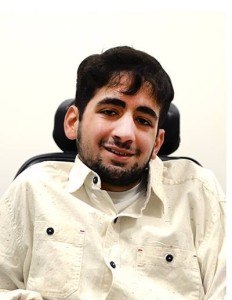September 22, 2015 is National Voter Registration Day, the only one day there will be coordinated field, technology, and media efforts to create awareness of voter registration. This is important for the disability community because in 2008 there were an estimated 6 million people who did not vote because they missed a registration deadline or did not know how to register. With a major election coming up on November 8, 2016, we need to make sure that the voice of people with disabilities is heard loudly.
So what can you do?
- Register voters that come into your Center for Independent Living.
- Hold a voter registration drive in your area. Partner with other nonprofits to increase the number of individuals you reach.
- A lot of voters need to register or reregister every year. This will provide an opportunity for you to educate the community of about your Center for Independent Living.
You can go to nationalvoterregistrationday.org to find out more.
 “Ten years ago Hurricane Katrina struck the Gulf Coast, taking hundreds of lives, upending thousands of others and ravaging communities. People with disabilities died and were harmed in disproportionate numbers. This week NCIL and Portlight are commemorating all those impacted by Katrina (especially people with disabilities), honoring the resilience of the survivors, acknowledging the failures which exacerbated the human toll, and recognizing important steps made in the last ten years to ensure that people with disabilities are better served in future disasters and are intimately involved in the planning and execution of those efforts.”
“Ten years ago Hurricane Katrina struck the Gulf Coast, taking hundreds of lives, upending thousands of others and ravaging communities. People with disabilities died and were harmed in disproportionate numbers. This week NCIL and Portlight are commemorating all those impacted by Katrina (especially people with disabilities), honoring the resilience of the survivors, acknowledging the failures which exacerbated the human toll, and recognizing important steps made in the last ten years to ensure that people with disabilities are better served in future disasters and are intimately involved in the planning and execution of those efforts.” In 2014, ACL became the home for Adult Protective Services (APS), and Administrator Greenlee has made it a priority to focus on the abuse, neglect, and exploitation of people with disabilities and older adults. She will be meeting with Jan and Kelly to discuss how ACL can be better engaged with APS, and they are looking for input from you about your experiences.
In 2014, ACL became the home for Adult Protective Services (APS), and Administrator Greenlee has made it a priority to focus on the abuse, neglect, and exploitation of people with disabilities and older adults. She will be meeting with Jan and Kelly to discuss how ACL can be better engaged with APS, and they are looking for input from you about your experiences. On Friday, July 24, 2015, in celebration of the 25th Anniversary of the landmark Americans with Disabilities Act (ADA), the U.S. Department of Education’s Office for Civil Rights will bring together policy and program leaders, community organizations, and youth to examine current implications of the ADA’s implementation and cross-cutting issues with other federal civil rights laws, and plant the seeds for the next 25 years of achieving new milestones to advance civil rights for people with all types of disabilities. To unite thought leaders with today’s up-and-coming generation of youth and young adults with disabilities, the event will consist of three parts.
On Friday, July 24, 2015, in celebration of the 25th Anniversary of the landmark Americans with Disabilities Act (ADA), the U.S. Department of Education’s Office for Civil Rights will bring together policy and program leaders, community organizations, and youth to examine current implications of the ADA’s implementation and cross-cutting issues with other federal civil rights laws, and plant the seeds for the next 25 years of achieving new milestones to advance civil rights for people with all types of disabilities. To unite thought leaders with today’s up-and-coming generation of youth and young adults with disabilities, the event will consist of three parts.
